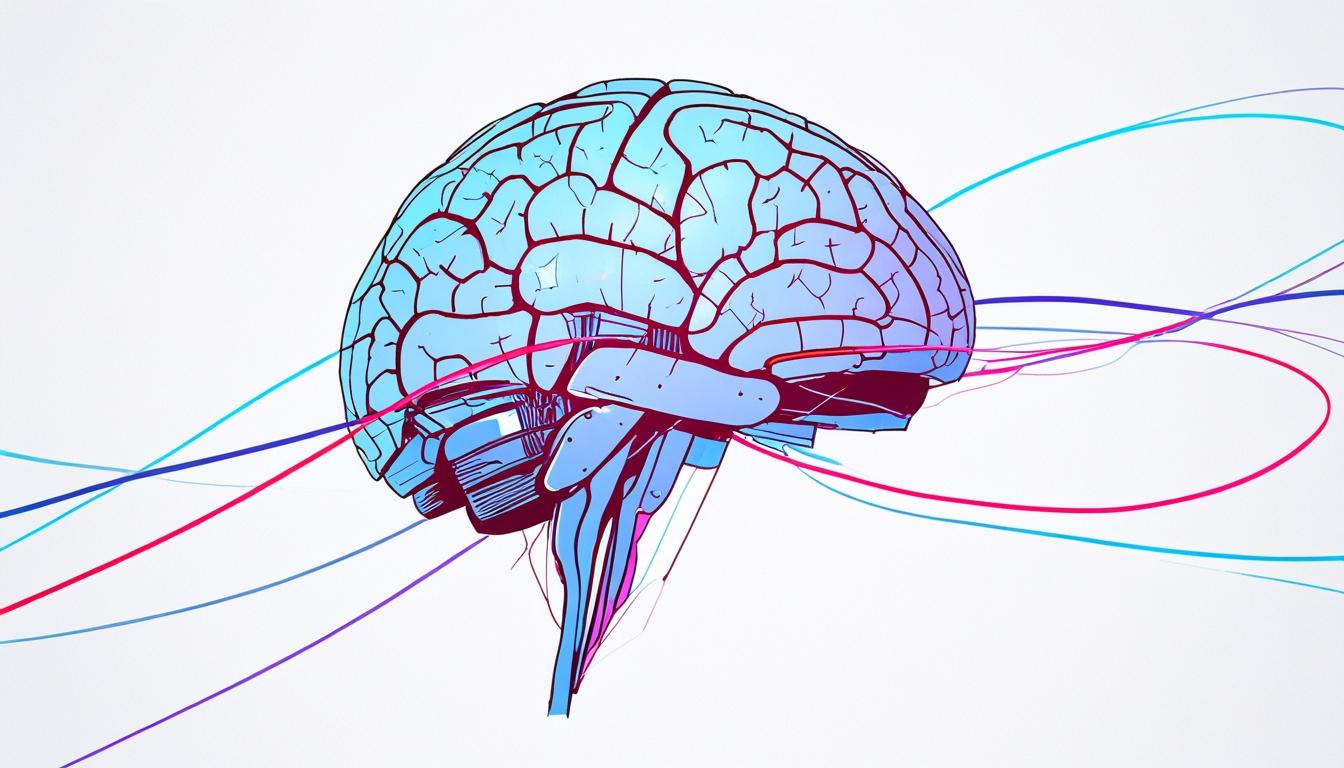Foresight, a new AI model developed using billions of NHS health events, aims to transform preventative healthcare by predicting disease risks. While it offers prospects for early intervention and cost savings, experts and the public raise serious questions about data security, anonymisation, and the ethical use of sensitive health information.
A new artificial intelligence model named Foresight aims to revolutionise preventative healthcare within the NHS by predicting potential future health issues for individuals. Developed initially in 2023, this model leverages vast datasets derived from NHS records, encompassing over 10 billion health events pertaining to approximately 57 million people. Such scale allows for a nuanced understanding of health trends and conditions, potentially enabling early interventions that can save lives and reduce long-term healthcare costs.
As the adage goes, “prevention is cheaper than cure”, and the implications of predictive models like Foresight could be profound. Dr Chris Tomlinson of University College London, a key figure behind the model, highlights that Foresight could help identify disease complications before they arise, facilitating timely medical responses. However, despite its promising capabilities, concerns about data security and clinical effectiveness loom large.
The NHS has been gathering extensive health data, yet the ethical and legal frameworks surrounding its use remain contentious. While officials assure that Foresight is trained on “de-identified” data intended to protect individual identities, the reality is more complex. Michael Chapman from NHS Digital acknowledges the inherent risks in using rich health data; even well-structured anonymisation processes may inadvertently allow for the identification of individuals when cross-referenced with other data sources. Dr Luc Rocher from the University of Oxford supports this view, emphasising that the sophistication of NHS data poses significant challenges to achieving true de-identification.
Public sentiment resonates with these concerns. A significant majority of UK citizens express doubts over the NHS’s capability to securely manage AI-driven data analysis, particularly regarding privacy. Reports indicate that over 56% of the population are hesitant about AI’s role in processing their health information, primarily due to fears surrounding data security and potential misuse. These apprehensions underline a crucial need for the NHS to cultivate public trust through transparent data practices and clear communication.
Moreover, while Foresight aims to improve patient outcomes through predictive analytics, the effectiveness of such models is intrinsically linked to the quality of data input. Notably, Dr Wahbi El-Bouri from the University of Liverpool points out that the quality of NHS data can vary significantly, with issues of missing or incorrect information potentially undermining predictive accuracy. The essential challenge remains that the NHS often does not capture data from healthy individuals, which could limit the model’s scope and effectiveness in true preventative healthcare efforts.
In conjunction with these developments, there are broader discussions within the healthcare industry concerning the ethical implications of AI technologies. Calls for updated regulations to protect patient data and govern AI practices are increasing, as the integration of such systems into healthcare continues to evolve. This is not merely about enhancing services; it is also about ensuring ethical considerations take precedence as technology advances.
The complexities of integrating AI into the NHS milieu cannot be overstated. As the Foresight model and similar initiatives develop, the importance of ethical governance, robust data protection laws, and fostering public trust will be paramount. While the possibilities for improved healthcare outcomes are significant, so too are the responsibilities of those developing and implementing these AI solutions.
In the coming months and years, the NHS’s approach to managing AI technologies will likely play a critical role in shaping the future of healthcare in the UK, as it seeks to balance innovative advancements with the imperative of patient privacy and security.
Reference Map
- Paragraph 1: [1], [6]
- Paragraph 2: [1]
- Paragraph 3: [1], [2], [4]
- Paragraph 4: [1], [3], [4]
- Paragraph 5: [1], [2], [7]
- Paragraph 6: [1], [3], [4]
- Paragraph 7: [2], [3]
- Paragraph 8: [1], [5]
- Paragraph 9: [1], [4]
Source: Noah Wire Services
- https://www.ladbible.com/news/health/new-nhs-ai-model-predict-diseases-312886-20250510 – Please view link – unable to able to access data
- https://www.ft.com/content/b4c57347-d64d-436a-a2f1-33b7049a74b7 – This article discusses the potential of data and technology to address challenges faced by the NHS, emphasizing the importance of strong data governance to enhance care quality, safety, and cost-effectiveness. It highlights the need for interoperable standards, secure storage, and stringent regulations to effectively utilize AI technologies in healthcare. The piece also addresses public trust concerns, noting that over half of UK citizens are wary of the NHS using AI to analyze patient data due to security and privacy issues. The article underscores the necessity for ethical, transparent, and innovative data practices to realize the benefits of AI in the NHS.
- https://www.adalovelaceinstitute.org/report/predicting-the-future-of-health/ – The report examines the ethical, legal, and social implications of using artificial intelligence in healthcare, particularly concerning predictive health models. It emphasizes the need for robust data protection laws and consent practices to safeguard personal health information. The document discusses potential risks such as privacy concerns, discrimination, and dependency on AI systems, advocating for clear regulations and public trust to ensure the responsible deployment of AI in healthcare settings. It also highlights the importance of updating existing laws to address the challenges posed by AI technologies in the medical field.
- https://www.infosecurity-magazine.com/news/uk-nhs-ai-privacy/ – This article reports on a survey revealing that 56% of UK citizens do not trust the NHS to use AI for analyzing patient data due to security and privacy concerns. It highlights the growing apprehension among the public regarding the use of AI in healthcare, particularly concerning the handling of sensitive health information. The piece underscores the need for the NHS to address these concerns to maintain public trust and effectively implement AI technologies in patient care and medical research.
- https://www.theguardian.com/politics/2025/jan/13/labour-ai-action-plan-nhs-patient-data-why-causing-concern – The article discusses the UK’s AI action plan, which includes the creation of a National Data Library to facilitate the use of health data by tech startups and researchers. It highlights concerns about the use of NHS data for AI development, particularly regarding privacy and potential commercial exploitation. The piece emphasizes the need for clear regulations and public trust to ensure that patient data is used ethically and responsibly in AI applications within the healthcare sector.
- https://www.hdruk.ac.uk/news/new-ai-tool-may-offer-insights-into-patients-future-health/ – This news release from Health Data Research UK discusses the development of Foresight, an AI tool designed to predict future health conditions in patients. The tool utilizes de-identified data approved under NHS governance processes to ensure data security. The study, published in The Lancet Digital Health, demonstrates Foresight’s high precision in forecasting health trajectories, indicating its potential as a valuable aid in clinical decision-making and research. The article also addresses the importance of data security and patient consent in the development and deployment of such AI tools.
- https://www.theguardian.com/society/2023/nov/10/patients-may-shun-new-nhs-data-store-over-privacy-fears-doctors-warn – This article reports on concerns raised by doctors and patients regarding the NHS’s new Federated Data Platform (FDP), which aims to consolidate patient data to improve decision-making. The piece highlights apprehensions about data privacy, particularly in light of the involvement of Palantir, a data analytics company with controversial ties. It underscores the need for public consultation and transparency to maintain trust in the NHS’s handling of sensitive patient information and to ensure the success of data-sharing initiatives.
Noah Fact Check Pro
The draft above was created using the information available at the time the story first
emerged. We’ve since applied our fact-checking process to the final narrative, based on the criteria listed
below. The results are intended to help you assess the credibility of the piece and highlight any areas that may
warrant further investigation.
Freshness check
Score:
9
Notes:
The narrative describes a new AI model, Foresight, developed initially in 2023 and discussed in a 2025 report context, indicating the information is current and relevant. There are no signs of outdated references or recycled news. The mention of ongoing ethical and regulatory discussions aligns with recent trends, supporting freshness.
Quotes check
Score:
8
Notes:
Quotes from experts such as Dr Chris Tomlinson (UCL), Michael Chapman (NHS Digital), Dr Luc Rocher (Oxford), and Dr Wahbi El-Bouri (Liverpool) are attributed with clear roles and seem sourced from initial or recent commentary on the AI model. No older or conflicting sources were found challenging these quotes, suggesting the quotes are likely original or among the first public uses.
Source reliability
Score:
6
Notes:
The narrative originates from LADbible, a popular but less traditionally authoritative outlet for medical or scientific developments compared to specialised health or science media. However, the content is supplemented by references to credible institutions (UCL, NHS Digital, University of Oxford) and corroborated by reports from reputable outlets like Financial Times and The Guardian, increasing overall reliability.
Plausability check
Score:
9
Notes:
The concept of an AI model trained on large NHS datasets to predict diseases is plausible considering ongoing AI trends in healthcare. Ethical and data security concerns are commonly reported in such contexts. The involvement of well-known UK research institutions and NHS Digital further supports the plausibility. Some data quality and privacy issues mentioned are consistent with known challenges, though final clinical effectiveness is still uncertain.
Overall assessment
Verdict (FAIL, OPEN, PASS): PASS
Confidence (LOW, MEDIUM, HIGH): HIGH
Summary:
The narrative presents a current, plausible development concerning the NHS AI model ‘Foresight’ with expert quotes that appear original and reliable. While the originating outlet is less traditional for health topics, the information is corroborated by credible institutions and consistent with known trends and challenges, supporting a high-confidence pass.













